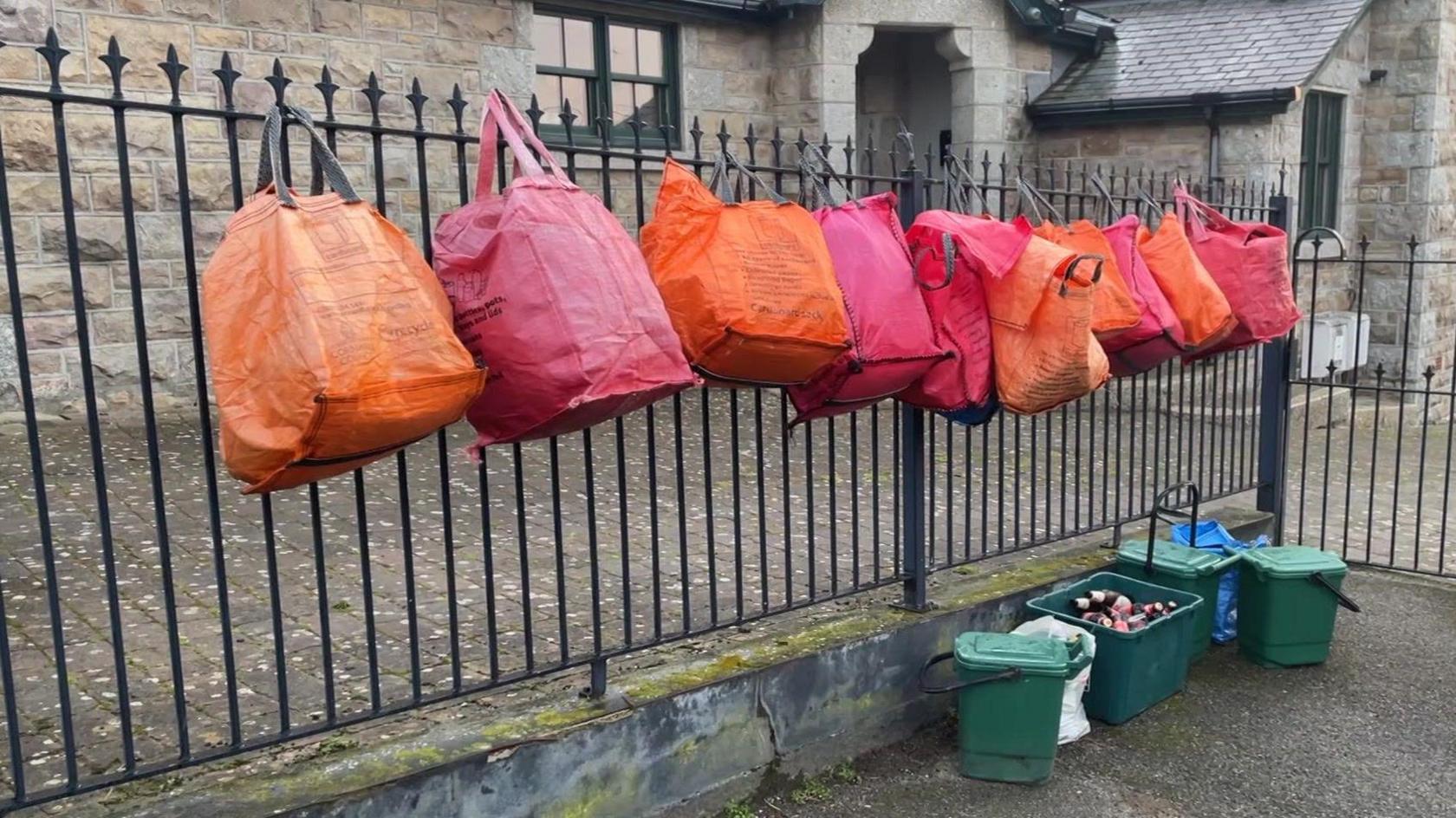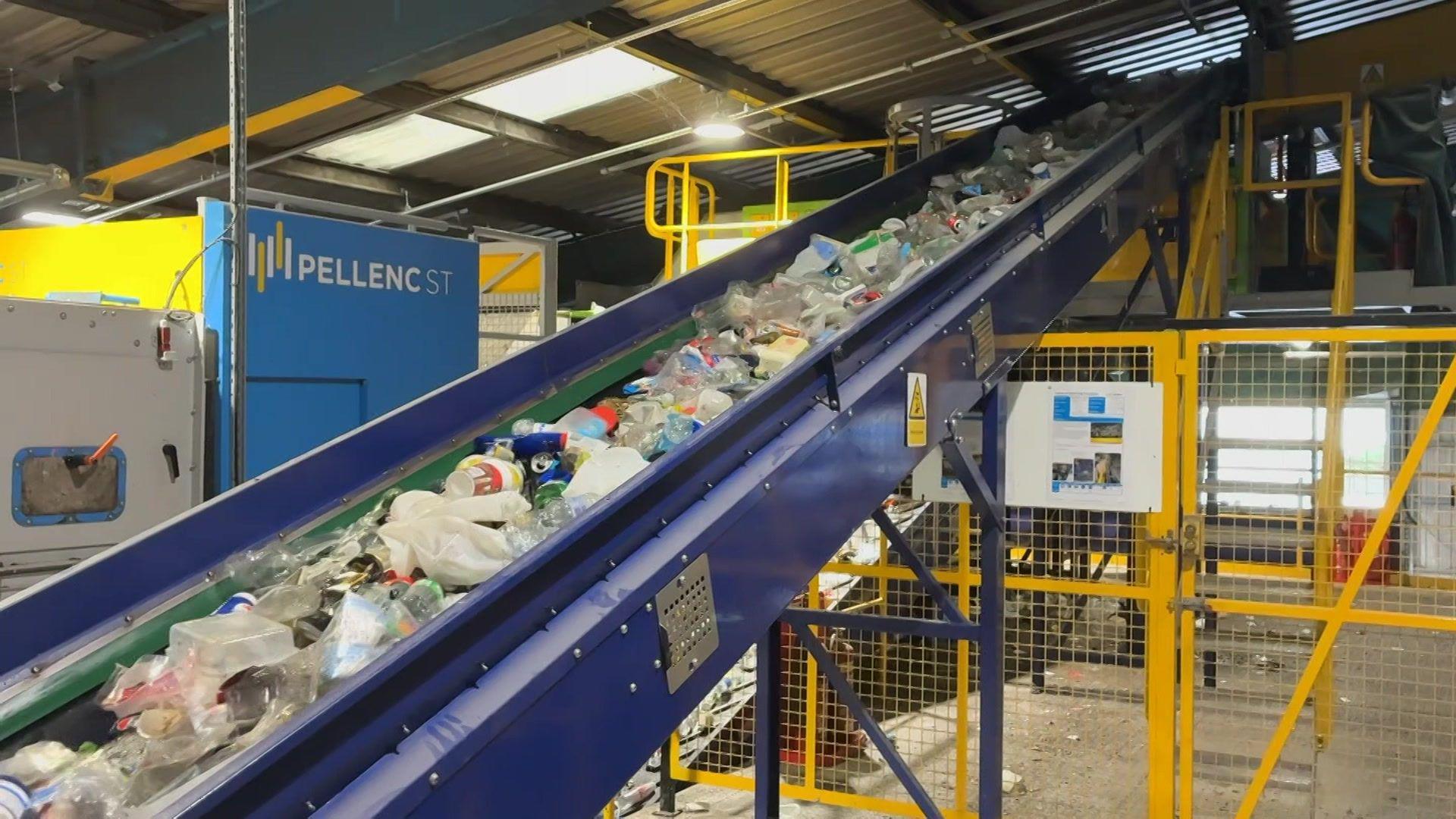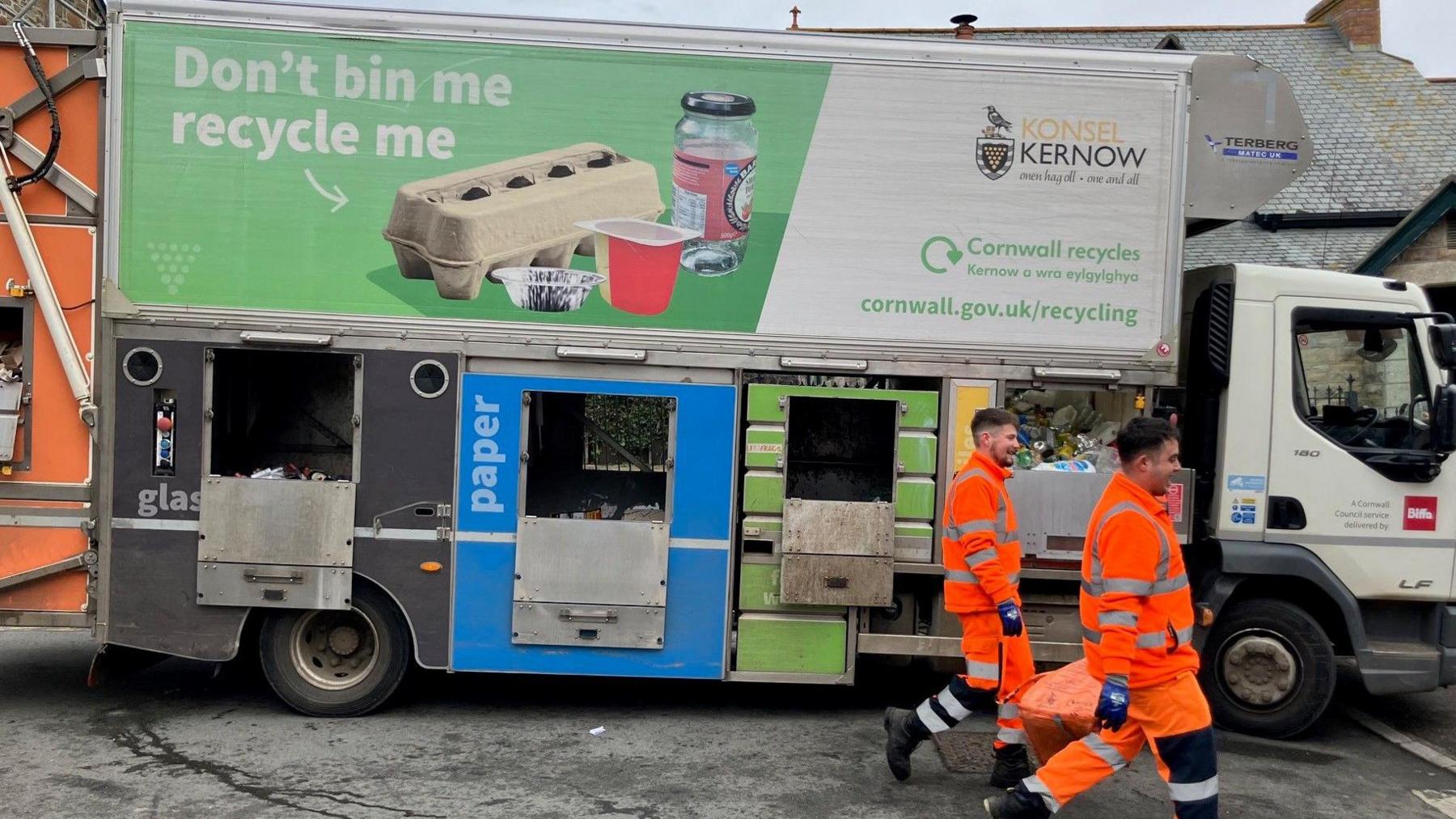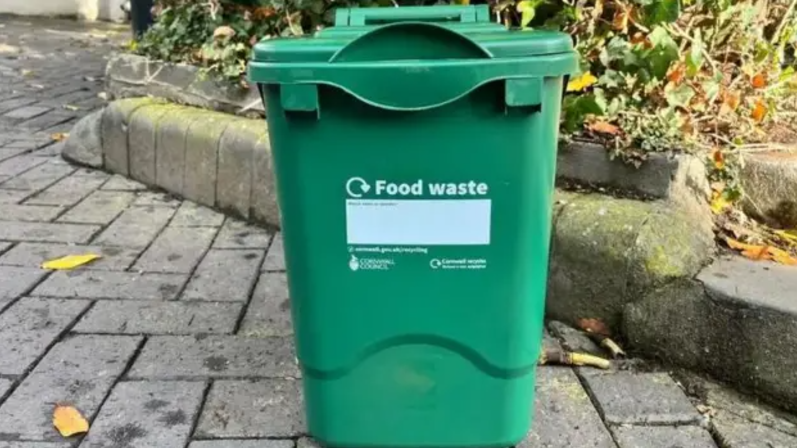New waste regime sees recycling rate rise to 51%

Cornwall Council said the recycling rate has increased to 51%
- Published
Recycling rates have risen from 31% to 51% since the introduction of a new bin collection system over the past two years, Cornwall Council has said.
Recycling and black bag waste are now collected fortnightly in the county, and new food waste bins are collected weekly.
The authority said there was "still more work to do" as recent analysis showed 45% of black bag waste could have been recycled.
New recycling services for food and drink cartons, as well as soft plastics, were due to be introduced next year, the council added.

After being sorted in Bodmin, plastics and metals are sold to waste companies in the UK
Council leader Loic Rich said: "I appreciate change sometimes can be a bit of a hassle, but think about the environment, those images of seals and turtles trapped in litter.
"Recycling is really a small thing to do to make a massive difference for the planet."
Esther O'Bearagh, a team leader in waste and recycling at Cornwall Council, said each type of product had a different treatment in a recycling transfer site in Bodmin.
Cardboard and paper are crushed into bales which are sold to be made into packaging or more paper.
Rubbish and waste: Where does it all go once it is collected?
Cornwall Council's Esther O'Bearagh explains some of the processes
Plastic and metals are sorted, crushed and sold to waste companies in the UK.
Food waste is taken to an anaerobic digester in Holsworthy, Devon, where methane gas is created for energy and the residue made into fertiliser.
Bottles are sailed to Scotland from Falmouth on container ships where they are made into new glass.
When asked whether recycling was ever incinerated or sent abroad or to landfill, Ms O'Bearagh said: "It disappoints me that people still think that - I've been telling people for more than 30 years - that we don't do that.
"Why would we go to the effort of doing all of the stuff we do just to take it and landfill it or burn it."
Follow BBC Cornwall on X, external, Facebook, external and Instagram, external. Send your story ideas to spotlight@bbc.co.uk, external.
- Published7 February

- Published7 December 2024
